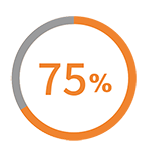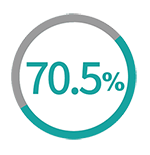1.What is immunocellular therapy? How is it different from traditional cancer treatments?+
Traditional cancer treatments include surgery, chemotherapy, radiation therapy, and targeted drugs. These treatments often come with significant side effects, which can be irreversible for cancer patients. After treatment, patients may require a long recovery period, which can impact their quality of life.
Immunocellular therapy, also known as a non-toxic and non-invasive cancer treatment method, involves using the patient's cultured blood. Immune cells are isolated through immunotherapy technology, then cultured, expanded, and activated outside the body, and finally reinfused into the patient to attack cancer cells. This approach has minimal side effects and helps maintain the patient's quality of life.
2.Is immunotherapy the same as immunocellular therapy?+
Generally, immunotherapy refers to the use of immune checkpoint inhibitors or immune drugs, which is completely different from immunocellular therapy.
Immunotherapy: works by targeting PD-L1, a protein that cancer cells release to disguise themselves as normal cells, making them undetectable to the immune system. Immune drugs block the action of PD-L1, allowing the immune system to recognize and attack cancer cells. However, forcibly blocking PD-L1 can cause immune cells to indiscriminately attack normal cells, leading to irreversible autoimmune diseases.
Immunocellular therapy: relatively mild. It involves extracting the patient's blood, isolating immune cells using immunocellular technology, then cultivating, expanding, and activating them outside the body before reinfusing them into the patient to target and kill cancer cells. This approach has minimal side effects and helps maintain the patient's quality of life.
3.Despite undergoing surgery, chemotherapy, radiotherapy, or other treatments to eliminate cancer cells in the body, why does recurrence happen?+
cells in the body, why does recurrence happen? -
Cancer cells are very tricky and can easily hide. Many patients endure the side effects of cancer treatment and various physical discomforts, and although tests may show that the cancer cells have been completely eliminated, they can still hide in areas undetectable by instruments, waiting for an opportunity to reemerge.
Lukas Biomedical's immunocellular therapy employs "Memory T cells" which possess specific immune memory. These cells can survive in the body for over a year, continuously circulating and monitoring for cancer cells. Upon encountering cancer cells, they promptly initiate an attack, effectively helping to prevent recurrence and maintain control over the disease.
4.Are all immunocellular therapies the same? Can they all be applied to malignant solid tumors? Does Lukas Biomedical's memory T cell therapy have advantages?+
Each biotech company has its own immune cell culture techniques, each with its pros and cons. The table below lists the common immune cells and their advantages in cancer treatment:
| Cell Type | Memory T cells 👍 | Dendritic immune cells | Natural killer cells |
Cytokine-induced killer cells (CIK) |
DC-CIK
|
Gamma-Delta T cells
(γδT /GDT cells)
|
|---|---|---|---|---|---|---|
| Cell Culture Time | Short | Long | Short | Short | Long | Long |
| Invasiveness | ✖️ | ✔️ | ✖️ | ✖️ | ✖️ | ✖️ |
| Indications | Solid tumors | Solid tumors | Hematologic tumors | Solid tumors | Solid tumors | Solid tumors |
| Marketed drug | ✔️ | ✖️ | ✖️ | ✖️ | ✖️ | ✖️ |
| Self-proliferation ability | ✔️ | ✖️ | ✖️ | ✖️ | ✖️ | ✖️ |
| Specificity | High | High | Low | Low | Moderate | Moderate |
| Side effects | Low | Low | Low | Low | Low | Low |
| Characteristics |
With immune specificity and long-lasting duration, memory T cells can persist in the body. Memory T cells can be reactivated and target tumor cells after cancer relapsing, reducing the risks of recurrence. |
A cancer vaccine with high specificities can promote T cell activation after loading specific tumor antigens. | Innate immune cells lack specificity and are not limited by MHC. | A mixture of various types of immune cells can regulate each other and attack tumor cells collectively. |
Possesses both DC and CIK cells features. |
Contains the characteristics of both innate and adoptive immunity. Do not require APC dependent activation. |
| disadvantages |
Require sophisticated cell culture techniques. |
DC cells do not directly target and attack tumor cells. The tumor specific antigens are usually obtained through surgery, but if the tumor cells mutate, the antigen may no longer be effective. |
NK cells are effective against hematological neoplasms but not solid tumors. A large number of cells is need to enhance the therapeutic effects. |
Cell culture techniques, cell percentages (CD markers), and specificities vary between manufacturers. Cell survival period is short. |
Possesses the disadvantages of both DC and CIK cells. DC cells (WT1) do not require induction through solid tumor antigens, but the effectiveness is limited depending on the patient’s condition. |
GDT cells are difficult to culture, which comprise only 5% of the T cell population in health individuals and fewer in cancer patients. |
5.Can I only undergo immunocellular therapy without chemotherapy, radiotherapy, or surgery?+
Cancer tumors are highly personalized diseases. Even when using the same treatment for cancers of the same type and stage, the treatment efficacy varies from person to person. Cancer treatment is a long-term and complex process. Upon discovering cancer, it is crucial to follow a professional physician's recommendation for combined therapy, utilizing all available treatment options to maximize effectiveness.
Immunocellular therapy can be combined with various treatment methods to address the immune deficiency and low white blood cell count caused by common treatments. This therapy provides robust support and additional anti-cancer weaponry during the cancer treatment process. Additionally, it can be used after traditional treatments to target residual or undetectable cancer cells, helping to prevent recurrence.
6.Is immunocellular therapy only applicable to advanced-stage cancer?+
Immunocellular therapy is not only suitable to patients in the late stages (Stage IV), but it is actually more effective when used earlier. Many patients begin immunocellular therapy only after reaching an advanced stage and developing drug resistance, by which time their bodies have been heavily impacted by chemical or destructive treatments, and they have been told that there are no further treatment options. While some patients may achieve stable disease control, a few experience organ failure or ascites, and the immune cells do not have time to react, leading to unfortunate outcomes. If immunocellular therapy can be introduced earlier in combination with other treatments, it can achieve better results by seizing the golden period for optimal treatment.
7.What is the cure rate of immunocellular therapy? Can it completely cure cancer?+
In medical terms, cancer treatment primarily focuses on the five-year survival rate rather than the cure rate.
Achieving effective control to prevent recurrence and metastasis while maintaining the patient's quality of life is the primary goal of immunocellular therapy. It is also the main reason why many cancer patients choose this therapy.
Below are the statistical results of Lukas Biomedical's memory T cells under Taiwan's Administrative Regulation on Special Medical Instruments and Inspection Techniques:
Statistical Data of Total Treatment Efficiency in Taiwan
-

Actual Types of Cancer Treated
Type: Stage I to III solid tumors unresponsive to standard treatmentsCancers: Head & neck cancer, breast cancer, liver cancer, pancreatic cancer, and colorectal cancer -

Actual Types of Cancer Treated
Type: Stage IV solid tumorsCancers: Glioblastoma, nasopharyngeal cancer, lung cancer, liver cancer, stomach cancer, and colorectal cancer
8.Does immunocellular therapy receive health insurance subsidies? Can it be covered by commercial medical insurance?+
Immunocellular therapy is currently a self-funded medical treatment and is not yet covered by health insurance.
The eligibility for commercial medical insurance claims depends on the insurance policy and coverage limits of the patient. Usually, cancer insurance, medical expense reimbursement insurance, and hospitalization insurance may be eligible for claims.
9.How much does immunocellular therapy cost?+
The costs for immunocellular therapy are fully disclosed under the government’s special administrative measures and are considered legitimate medical procedures. The fees may vary slightly depending on the hospital partnering with Lukas Biomedical. You can refer to the publicly available cell therapy fee information provided by the Ministry of Health and Welfare under these special administrative measures:
https://celltherapy.mohw.gov.tw/tech_search.htm
__24F13ETEBy.jpg)
10.How can I learn more about Lukas Biomedical's immunocellular therapy?+
If you want to schedule a consultation, you can use the following methods:
✍ Leave your contact information:https://www.lukas-biomedical.com/contact/
📑 Send a message via Facebook:https://www.facebook.com/lukas.bio.corp/
🤳 Send a message via LINE@ official account:https://page.line.me/?accountId=061buhws
☎️ Tel:02-29500027#305

